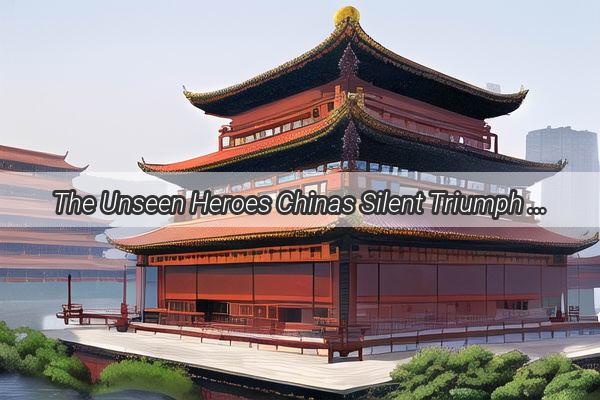The Unseen Heroes Chinas Silent Triumph in World War II
---
The Unseen Heroes: China's Silent Triumph in World War II
In the annals of history, World War II is often remembered for the grand battles fought across Europe and the Pacific. However, the contribution of China, a country that bore the brunt of the war's horrors on the Asian continent, is often overshadowed. This article delves into the lesser-known yet pivotal role China played in the global conflict, highlighting its silent triumphs that shaped the course of history.
The Outbreak of War: China's Early Struggle
The seeds of war were sown long before the Axis powers declared war. China had been suffering under Japanese aggression since the 1930s, with incidents like the Mukden Incident and the Nanking Massacre leaving a deep scar on the nation's psyche. When the war officially broke out in Europe in 1939, China was already embroiled in a fierce battle against Japanese expansionism.
The Longest War: A Staggering Sacrifice
The Sino-Japanese War, which began in 1937, is often referred to as the longest war of World War II. It spanned nearly six years and resulted in the loss of millions of Chinese lives. The Battle of Nanking, where Japanese forces committed unspeakable atrocities, is a stark reminder of the human cost China bore. Despite overwhelming odds, China's determination to resist was unwavering, and its struggle laid the foundation for the subsequent liberation of Asia.
A Haven for Exiles: The International Presence in China
As the war unfolded, China became a refuge for many who sought to escape the clutches of the Axis powers. It was here that the International Committee of the Red Cross set up its headquarters, and where countless refugees found solace. The presence of these international organizations not only provided aid but also helped to keep China's struggle in the global consciousness.
The Chinese Nationalist and Communist Alliances
Amidst the chaos, the Chinese Nationalist government, led by Chiang Kai-shek, and the Communist Party, headed by Mao Zedong, formed an uneasy alliance to fight against the Japanese. This alliance, though fraught with tensions, was instrumental in the eventual defeat of the Japanese forces in China.
The American Connection: The Flying Tigers and Beyond
The United States played a crucial role in supporting China during the war. The American Volunteer Group, known as the Flying Tigers, was a group of American pilots who fought alongside the Chinese Air Force. Their bravery and skill were instrumental in halting Japanese advances. Additionally, the United States provided significant material aid through the Lend-Lease program, bolstering China's war effort.
The Road to Victory: The Chinese Victory over Japan

After years of relentless fighting, the tide began to turn. In 1945, the Chinese Nationalist and Communist forces, with support from the Allies, launched a major offensive against the Japanese. On August 15, 1945, Japan surrendered, effectively ending the war in Asia. China had emerged as a victor, having suffered immense loss but also proving its resilience and resolve.
Legacy and Lessons Learned
The silent triumph of China in World War II serves as a testament to the human spirit's capacity for endurance and resilience. It is a story of sacrifice, unity, and the indomitable will to overcome adversity. The lessons learned from China's war effort continue to resonate today, reminding us of the importance of peace, the cost of conflict, and the enduring power of collective resolve.
In the shadow of the grand European and Pacific theaters, China's contribution to World War II is a narrative that deserves to be told and remembered. The unsung heroes of China's war are not just a part of history—they are the silent architects of the world we live in today.









